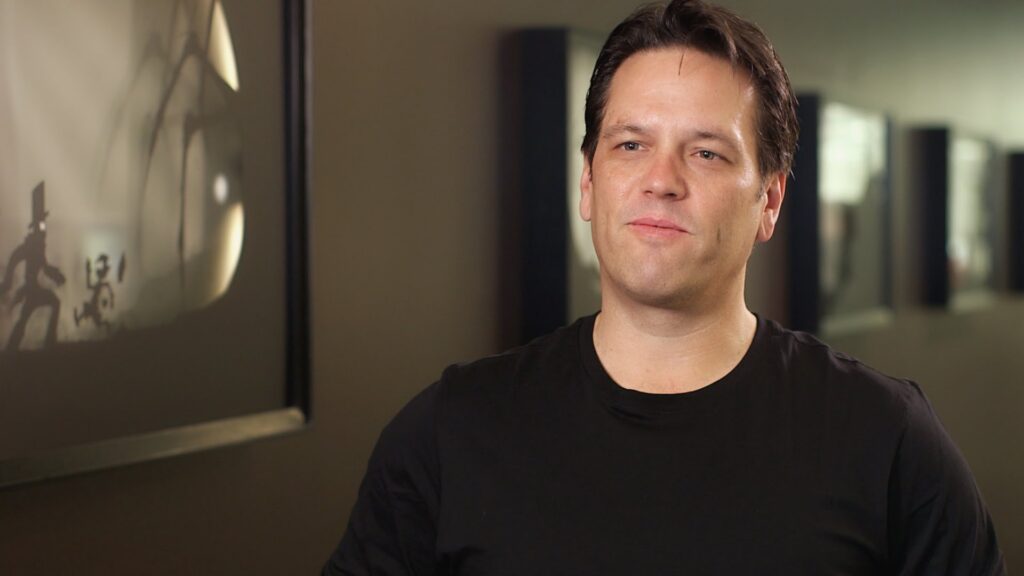It has been no secret that Microsoft has been pushing its various divisions quite hard on using various AI-based tools. When it comes to the gaming side of things, however, Microsoft Gaming CEO Phil Spencer has noted that these tools are only being used for operational functions, rather than for creative purposes. Speaking alongside Double Fine Studio head Tim Schafer at the Big Ideas, Small Games: Creativity Beyond the Blockbuster panel at the Paley International Council Summit, he said that the use of AI at Microsoft revolved around the security and protection of the company’s networks.
When talking about security and protection of networks, Spencer was specifically talking about social features on Xbox Live, including text and voice chats. He noted that, thanks to the massive user base of consoles in this day and age, the scope has grown well beyond what could be expected to be handled by just people when it comes to moderating the safety of these communication tools.
“Our applications of AI today are mostly actually on the security and protection of our networks,” he said, according to IGN. “It’s now at a scale where you can’t really moderate the safety of those with just people alone. The volume is too high. So we have AI that we use to make sure that the conversation and topics that are happening, and for protected child accounts and other things and who gets to talk to those accounts to those people, is locked down by parents or guardians who are setting those controls. That’s our primary use of AI inside of our organization today, which maybe isn’t the most glamorous use of AI, but it’s something that I fundamentally believe in.”
As for the use of AI for more creative endeavors like writing or asset generation, Spencer said that this decision was left up to individual teams that are actually making games. With his statement, he also noted his belief that top-down mandates for the use of such tools tend to not be successful. Rather, teams that want to make use of tools like AI to streamline their workflow are free to do so.
“On the creative side, I really leave it up to the teams,” he said. “I have found that creative teams will use tools that make their job easier when it makes their job easier, and any top-down mandate that ‘Thou must use a certain tool’…is not really a path to success. I look at the teams, and we make tools available, and I kind of let it organically percolate.”
Spencer also spoke about other potential uses for AI, including game discovery. Since the constant releases of games thanks to a thriving independent development scene as well as major companies putting out titles has made it harder to find new games, Spencer posits that AI tools could theoretically be used to recommend new games to players after being trained on what they like.
“An area that you’ve talked about that’s interesting is discovery,” Spencer said. “How do I find the next thing that I might love? In that scenario where we are looking at some of the AI tools – it’s not in practice today – but is there a way for us to use discovery based on things that you’ve done in the past to surface the next thing that you might not know about that might be interesting to you?”
“On the production side, which I think is where a lot of people go…we don’t have any goals in our model for that to happen. I think more about the pace of creativity, maybe the number of things we can try and take risks on before we decide on our next opportunity. But our AI use today is much more operational than it is in the creative space.”




This is an interesting take on Microsoft’s approach to AI in their operations. It’s great to see how they’re leveraging technology to enhance efficiency while allowing studios the freedom to choose. Looking forward to seeing how this strategy unfolds!
Microsoft is focusing on operational efficiency rather than mandating AI for studios. This could foster a more creative environment where developers feel empowered to innovate without the pressure of AI integration. It’ll be interesting to see how this balance impacts their overall productivity and creativity in the long run!
That’s a good point! By prioritizing operational efficiency, Microsoft might foster more creativity and innovation within their studios, allowing teams to focus on game development without feeling pressured by AI mandates. It’ll be interesting to see how this balance impacts their overall productivity and game quality in the long run.